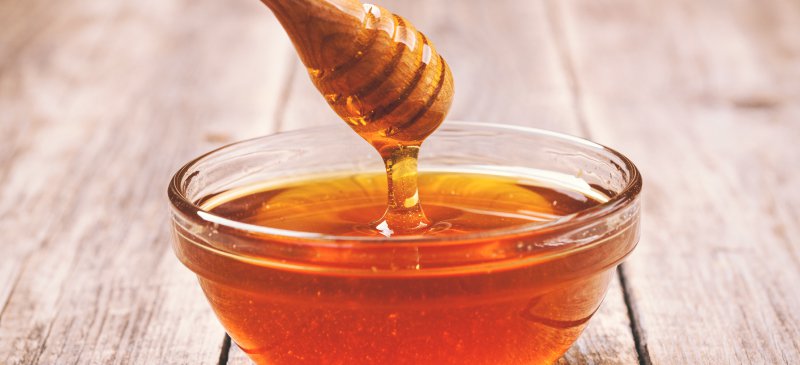Last Friday, bee farmers celebrated the World Bee Day with a reflection on the many challenges confronting the honey value chain potentials in Nigeria.
Currently, a litre of honey in Nigeria sells between N3,000 and N4,000, whereas a litre of petrol (premium motor spirit) sells at N165. Even if subsidy is removed, it won’t be valued at the current price of honey.
According to the Federal Ministry of Agriculture and Rural development, the country consumes around 400,000 tonnes of honey yearly, but produces less than 40,000 tonnes, which is 10 per cent of the consumption.
The import of 360,000 metric tonnes of honey amounts to an import bill of over N838 billion, which is about $2bn annually.
In fact, the Nigerian Export Promotion Council (NEPC) says lack of adequate production of honey in the country is costing the economy over $10bn annually.
The NEPC noted that Nigeria was capable of generating at least $10bn annually from the trading of honey and other beehive products if there is an improvement of quality compliance with food safety standards and fulfillment of 3rd Country Listing Certification to ease market access.
Alhaji Idris Muhammad Barau, the project director of the Beekeeping Extension Society and first vice president of the Federation of Beekeepers Association of Nigeria, a founding member of the West African Beekeepers Network, said that despite the industry potentials, government appeared to show little interest in bee farming.
“The major problems facing bee farmers are limited capital, vandalisation of hives, bush burning and insecurity .For capital, we seek for grants and also use available natural raw materials in hive constructions. But the remaining challenges are supposed to be checked by the government,” the Kaduna-based farmer stated.
Alhaji Idris, who is an advance beekeeping trainer for Bees Abroad UK Charity and holds a certificate of proficiency in African beekeeping in West Africa, extends modern beekeeping technology to local farmers.
“We also thought the farmers how to use locally available materials, such as corn stalks to make hives. This is helping in setting them on; and with the little harvest they make, they will gradually go into modern hives.
“On the part of the agricultural extension workers, we engage them in training as volunteers who later extend the technology to their farmers. Through this approach, we have been able to have a network of over 4,000 beekeepers,” he said.
The farmer has been into beekeeping and extension as a volunteer for over 20 years. He said that on the average, he produced about 800 litres while members of his network produced an average of 12,000 to 15,000 liters.
“I put in my whole life into beekeeping. It started as a passion but grew into a business, trainer and consultancy that took me to train beekeepers in Ghana, Cameroon, Liberia and Sudan, apart from Nigeria,” he said.
He added that he did supplementary feeding for his bees during low nectar and pollen supply.
Another beekeeper in Ijebu Ode, Ogun State, Oreyemi Babatunde Adenola, who has been in the business for 21 years, also shared his experience.
“When my mother and her group started beekeeping in Ijebu Ode, only a very small number of people understood what was going on. At a village where I set up my apiary, the villagers thought the hives were casket for burying little children. However, it is a great joy to know that the awareness is everywhere and people are making enquires everyday on how to start,” he said.
Mr Adenola, who is a member of the Nigeria Beekeepers Network, and Gateway Apic Association, Ogun State, West Africa Beekeepers, said they had created a situation where many were going into bee farming.
The farmer said the current problem rocking the foundation of beekeeping is the act of vandalism done to the apiaries. “In some areas, they harvest the honey. In some, they steal the hives with bees or empty hives, and lastly, in some other apiaries they go away with the iron stand.
“We have been able to identify such areas and encouraged farmers to move out. We are also targeting honey hunters for modern beekeeping trainings. If they understand the concept of modern beekeeping techniques, they may adopt it.
“We are also looking at adopting the use of chains to protect the hives box/roof, together with the stand. Therefore, it won’t be easy with the chain on to steal or open the hives,” he said.
Pastor Gideon Dagunduro, who leads the Anagada Farmers Cooperative in Abuja, told Daily Trust on Sunday that honey production, like other agric businesses, faced challenges of finance, adding that the fact that “most apiaries are being attacked by herdsmen” makes it even more difficult.
He also listed other challenges to include obsolete equipment, low government participation and lack of private partnership in bee farming as obtained in other agric subsectors.

 Join Daily Trust WhatsApp Community For Quick Access To News and Happenings Around You.
Join Daily Trust WhatsApp Community For Quick Access To News and Happenings Around You.


